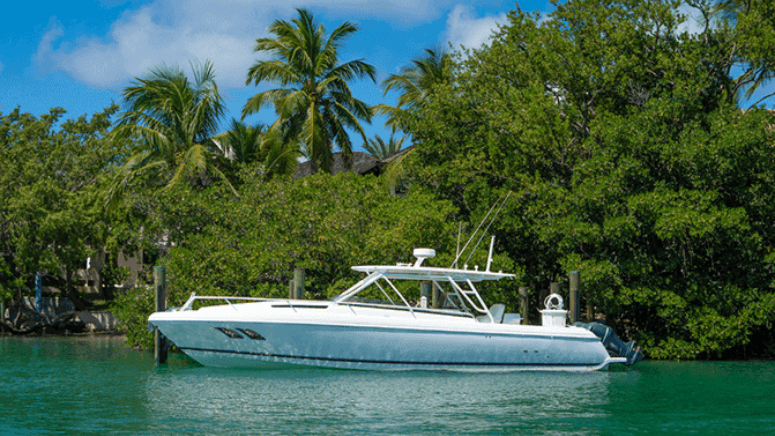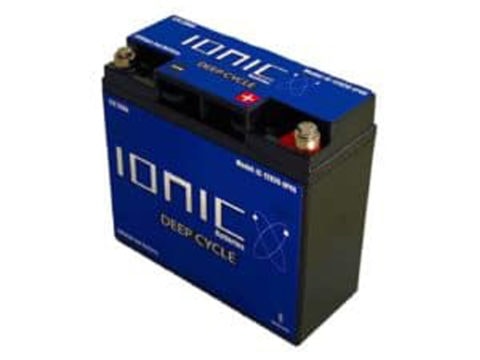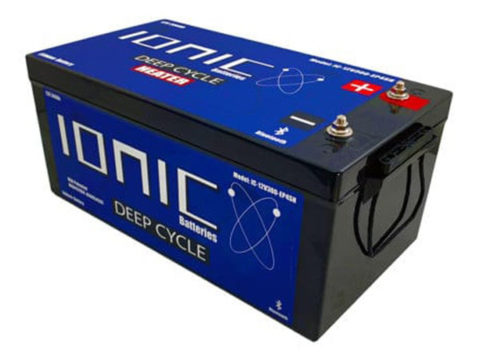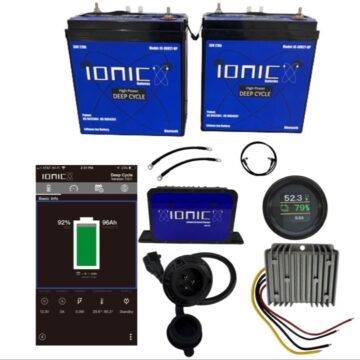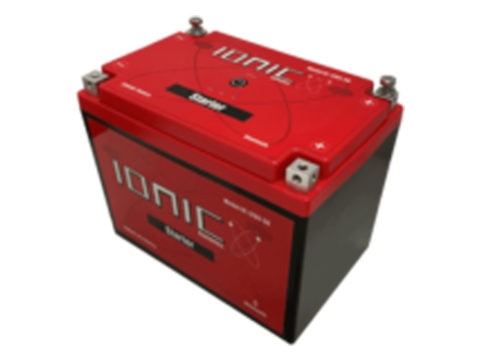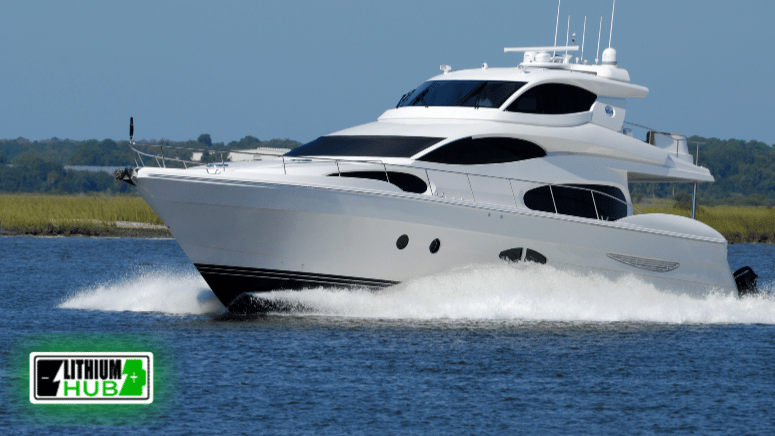Choosing a new boat battery can be a challenge, whether you’re a boating novice or a professional fisherman. So what do you choose? Do you go for the cheaper option initially or do you invest in a longer-term option? And what type of batteries do you even need?
Thankfully, things can be broken down pretty simply. To make things ultra easy, let’s first discuss the three main types of boat batteries: starter, deep cycle, and dual-purpose.
- Starting Battery: Your boat’s engine may be kicked into gear with the help of a marine battery. A cranking or starting battery serves one purpose. “Crank” refers to the speed with which a starting battery produces its total power output. Basically, the job of the starting batteries is to “crank” or start your boat. It won’t keep your engine running. The next boat battery on the list does that.
- Deep Cycle Battery: The plates in these batteries are thicker than those found in typical starting batteries. Using these plates, they can reliably provide electricity many hours a day. They have a high number of possible charging/discharging cycles too. These work well for lighting, GPS, fish finders, and powering your trolling motor.
- Dual Purpose Marine Battery: As its name implies, this battery is a starter and a deep cycle battery. Dual-purpose batteries have always had the reputation of being “jacks of all crafts and masters of none.” Some won’t provide enough juice to get specific motors going. Regular deep-cycle batteries have a much shorter lifespan than the alternatives. Lithium batteries are the exception. Our 12V battery options—the 100Ah and the 125Ah—serve double duty.
And one quick sidenote before we jump into the types of batteries – battery capacity. A 12v 125Ah battery has 125 amp hours – that’s what Ah stands for. In other words, it can (in theory at least) deliver 125 amps for an hour. That’s its capacity, the amount of current the battery provides. The “12V” is 12 volts. Multiply the volts by the amps and you’ll get the total wattage or workload of your boat battery. Ok, moving on.
Most boats require two types of batteries: a starting battery and a deep cycle battery. Getting a battery that can do double duty might be appealing from a cost or storage perspective. Nevertheless, this is only recommended if you choose a lithium chemistry battery. That takes us to a different way to break down boat batteries: by chemistry.
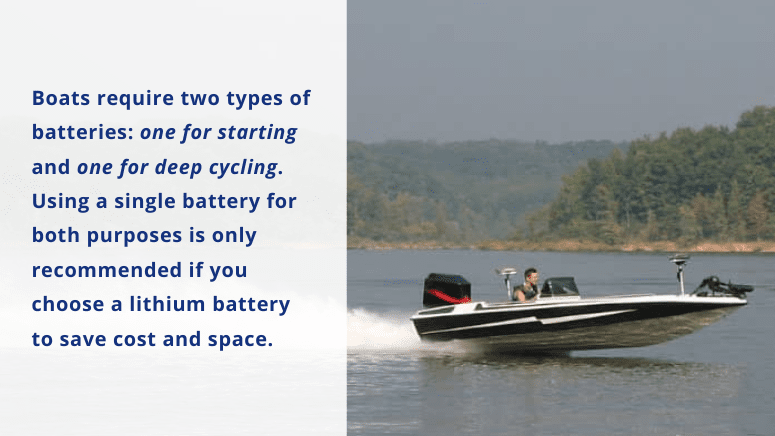
Battery Breakdown By Chemistry
There are two main types of marine batteries out there. When you separate them by what they’re made of, we’re talking about lead-acid and lithium.
Lead Acid Marine Batteries
Lead acid batteries are among the most traditional forms of marine batteries. Lead plates and acid are its primary ingredients. A blend of distilled water and sulfuric acid is used in flooded lead acid (FLA) batteries, the kind you often see aboard boats. Every so often, you’ll need to give them water.
Lead acid batteries are large and heavy, which are not qualities you want in a boat battery. Depending on how much power you want, you may need two or three batteries, each weighing about 80 pounds. That’s equivalent to adding one to two more people! They also have the longest charging times of any battery on the market.
AGM and gel lead-acid batteries both provide certain enhancements. They won’t leak and have a decreased rate of self-discharge. Nonetheless, their storage capacity is relatively little compared to their whole footprint.
With all those apparent drawbacks, why would anybody select lead acid? The main reason is that they’re initially lower in cost (especially FLA batteries). But when you factor in how frequently you’ll need to replace them, their low initial cost becomes prohibitive. Lead acid marine batteries typically only have two to four years of lifespan.
Lithium (LiFePO4) Marine Batteries
Lithium LiFePO4 batteries are an additional option for maritime use. Lithium iron phosphate is an entirely new chemical compound. The difficulties that beset lead acid batteries are rendered moot by this combination. Lithium batteries have the advantages of being portable, lightweight, durable, and quick to recharge. Using lithium marine batteries may reduce the weight of your boat’s batteries by as much as 70%.
A marine battery made of lithium is also more secure and won’t leak. They don’t need to be maintained, giving you more time to go boating and fishing. Boaters will like that they provide the same output, whether wholly or partially charged. Hence, at the end of the day, your trolling motor and other electronics can still function as they did initially.
Lithium batteries, in contrast, to lead acid batteries, are safe to drain to below 50%. The charge state of your Ionic battery may be monitored from your smartphone thanks to its Bluetooth features. Not to mention, our 12V 100Ah and 12V 125Ah lithium deep cycle batteries are dual-purpose, meaning they can power your lights, fish finder, and other electronics in addition to starting your engine. They combine the advantages of both battery types!
How Long Do Marine Batteries Last? Find out here!
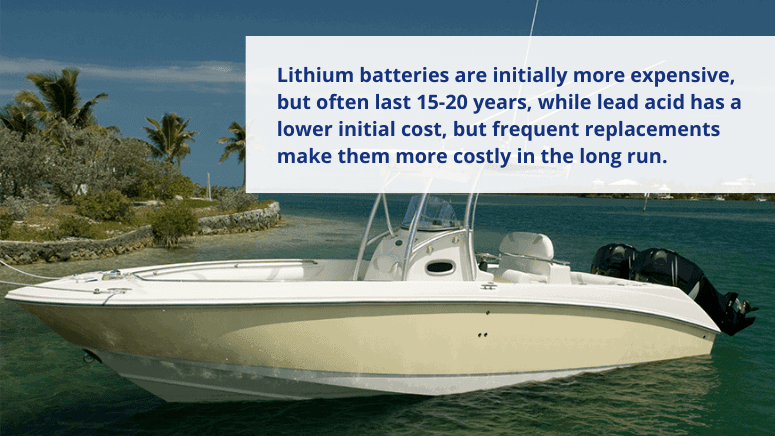
Final Thoughts
Choosing the right battery for your boat is an important decision that requires consideration. Understanding the differences between the different types of batteries, including starter, deep cycle, and dual-purpose batteries is important for making that decision.
And so is understanding the chemistry of different batteries, with lead-acid and lithium batteries being the two main options. While lead-acid batteries may be initially less expensive, they come with certain drawbacks. Their weight and maintenance requirements are big factors. Lithium batteries, on the other hand, offer a lightweight, durable, and easy-to-maintain option that’s ideal for boaters and fishermen. Ultimately, the right choice will depend on your specific needs and preferences.

